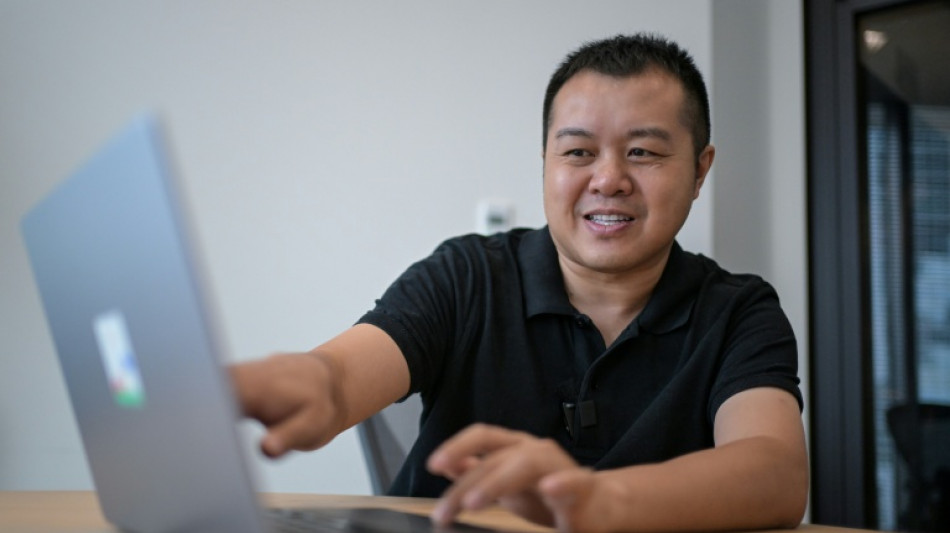
-
 Sabalenka fires Australian Open warning with Brisbane domination
Sabalenka fires Australian Open warning with Brisbane domination
-
In Gaza hospital, patients cling to MSF as Israel orders it out

-
 New protests hit Iran as alarm grows over crackdown 'massacre'
New protests hit Iran as alarm grows over crackdown 'massacre'
-
Svitolina powers to Auckland title in Australian Open warm-up

-
 Keys draws on happy Adelaide memories before Australian Open defence
Keys draws on happy Adelaide memories before Australian Open defence
-
Scores of homes razed, one dead in Australian bushfires

-
 Ugandan opposition turns national flag into protest symbol
Ugandan opposition turns national flag into protest symbol
-
Bears banish Packers, Rams survive Panthers playoff scare

-
 'Quad God' Malinin warms up for Olympics with US skating crown
'Quad God' Malinin warms up for Olympics with US skating crown
-
India eyes new markets with US trade deal limbo
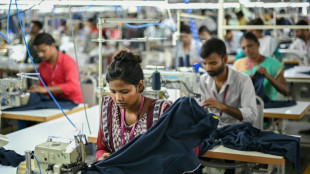
-
 Syria's Kurdish fighters agree to leave Aleppo after deadly clashes
Syria's Kurdish fighters agree to leave Aleppo after deadly clashes
-
New York's Chrysler Building, an art deco jewel, seeks new owner

-
 AI toys look for bright side after troubled start
AI toys look for bright side after troubled start
-
AI pendants back in vogue at tech show after early setback
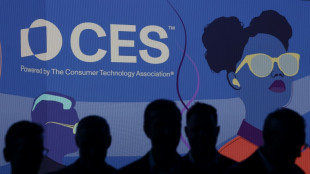
-
 Grateful Dead co-founder and guitarist Bob Weir dies aged 78
Grateful Dead co-founder and guitarist Bob Weir dies aged 78
-
Myanmar votes in second phase of junta-run election
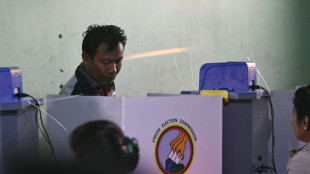
-
 'One Battle After Another' heads into Golden Globes as favorite
'One Battle After Another' heads into Golden Globes as favorite
-
Rams survive Panthers scare to advance in NFL playoffs

-
 Rallies across US after woman shot and killed by immigration agent
Rallies across US after woman shot and killed by immigration agent
-
Egypt dump out holders Ivory Coast as Nigeria set up AFCON semi with Morocco

-
 Rosenior salutes 'outstanding' start to Chelsea reign
Rosenior salutes 'outstanding' start to Chelsea reign
-
Maduro loyalists stage modest rally as Venezuelan govt courts US

-
 Byrne late penalty fires Leinster into Champions Cup last 16 after 'ding-dong' battle
Byrne late penalty fires Leinster into Champions Cup last 16 after 'ding-dong' battle
-
Rosenior makes flying start as Chelsea rout Charlton in FA Cup

-
 Rallies across US against shooting of woman by immigration agent
Rallies across US against shooting of woman by immigration agent
-
Salah closer to AFCON glory as Egypt dethrone champions Ivory Coast

-
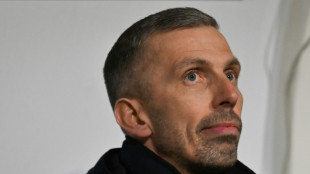 O'Neil ends 'crazy three days' with Strasbourg cup canter
O'Neil ends 'crazy three days' with Strasbourg cup canter
-
Mitchell leads Cavs over T-Wolves

-
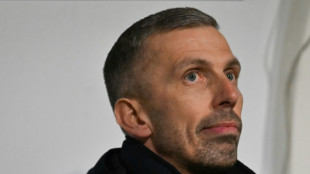 O'Neil ends 'crazy few days' with Strasbourg cup canter
O'Neil ends 'crazy few days' with Strasbourg cup canter
-
Argentina wildfire burns over 5,500 hectares: governor

-
 Byrne late penalty fires Leinster into Champions Cup last 16
Byrne late penalty fires Leinster into Champions Cup last 16
-
Roma beat Sassuolo to close in on Serie A leaders Inter

-
 Villa's FA Cup win at Spurs leaves Frank on the brink
Villa's FA Cup win at Spurs leaves Frank on the brink
-
Osimhen focused on Nigeria glory not scoring record

-
 Undav calls shots as Stuttgart thump Leverkusen
Undav calls shots as Stuttgart thump Leverkusen
-
Venezuelan prisoners smile to hear of Maduro's fall
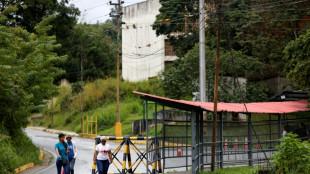
-
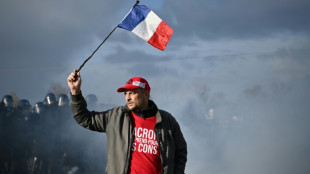 Thousands of Irish, French farmers protest EU-Mercosur trade deal
Thousands of Irish, French farmers protest EU-Mercosur trade deal
-
Kiplimo captures third straight world cross country title
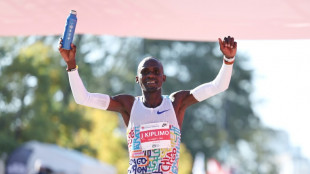
-
 Osimhen leads Nigeria past Algeria into AFCON semi-finals
Osimhen leads Nigeria past Algeria into AFCON semi-finals
-
US urges fresh talks between Syria govt, Kurds after deadly clashes

-
 Weekend of US protests after woman killed by immigration agent
Weekend of US protests after woman killed by immigration agent
-
Monaco cling on with 10 men to avoid French Cup shock

-
 Rooney close to tears as brother masterminds FA Cup history
Rooney close to tears as brother masterminds FA Cup history
-
Semenyo scores on Man City debut in 10-goal rout of Exeter

-
 Villarreal sink Alaves to stay in La Liga hunt
Villarreal sink Alaves to stay in La Liga hunt
-
Bristol, Glasgow reach Champions Cup last 16

-
 Freiburg beat 10-man Hamburg to climb to eighth in the Bundesliga
Freiburg beat 10-man Hamburg to climb to eighth in the Bundesliga
-
Venezuela loyalists to rally one week after Maduro's capture

-
 Syrian authorities transferring Kurdish fighters from Aleppo to northeast
Syrian authorities transferring Kurdish fighters from Aleppo to northeast
-
Football: Five memorable FA Cup upsets


Top Japan start-up Sakana AI touts nature-inspired tech
When David Ha started an AI company in Japan with his former Google colleague, they had a choice: create another huge, energy-intensive tool like ChatGPT, or go their own way.
Since its 2023 launch, the value of their firm Sakana AI has soared past $1 billion, becoming Japan's fastest start-up to reach so-called unicorn status.
"In a space like AI, everyone's kind of doing the same thing. They're just like collecting the world's data, building a gigantic model, sucking up all this energy," Ha told AFP.
For a new venture, "the chance of success is actually quite low, especially in Japan", where the resources to run power-hungry data centres are scarce.
Instead of going head-to-head with top players like OpenAI or Alibaba, Sakana aims to merge existing and new systems, large and small, to develop what it calls "collective intelligence".
In many countries, "people are debating, should I use a Chinese model or should I use a US model?" Ha said, referring to AI foundation models trained on vast amounts of data.
But in today's tumultuous world, "you can imagine... a scenario where a certain provider might turn off their models", he added.
Combining the best aspects of multiple systems means Sakana's AI-powered programmes could in theory "continue to operate", he said, even if "with slightly lower performance at the beginning".
Sakana's approach has won it the support of US chip giant Nvidia as well as Japanese banks and other businesses keen to get ahead in the fast-moving world of generative artificial intelligence.
The word sakana means fish in Japanese, and the start-up says it is inspired by nature, where species from ants to humans collaborate to solve problems.
- 'Soft power' -
Ha, a Hong Kong-born Canadian and long-term Japan resident, is a former Google Brain research scientist who previously traded derivatives for Goldman Sachs.
He founded Sakana AI with ex-Google researcher Llion Jones, co-author of a groundbreaking 2017 machine learning paper, and Ren Ito, who has held positions in Japan's foreign ministry.
Sakana's team numbers more than 100, including contractors, and its unassuming offices are located in a shared Tokyo start-up space.
Japan is pouring tens of billions of dollars into AI and semiconductors, hoping to claw back some of its 1980s tech glory and boost the productivity of its shrinking workforce.
But there is some way to go. In academic institute IMD's 2025 World Competitiveness Ranking, Japan came 35th, with researchers saying it needs to foster entrepreneurship and address labour shortages caused by its ageing population.
"There are a lot of business challenges in Japan", where working environments are "very different" to Europe, China or the United States, Ha said.
But "building from the ground up" is an advantage for Sakana AI, which is "taking advantage of Japan's soft power" to attract talented software engineers.
In starting the company, Ha has put down roots in Japan, which "has its problems" but remains "a leading democracy in Asia", he said.
- Experimentation -
The tools developed by Sakana AI include a Japanese-language chatbot called "Tiny Sparrow" that works offline, protecting users' privacy.
Another trained on historical Japanese literature responds to text queries in samurai-like language.
Some coders have pointed out problems in the output of Sakana projects such as AI Scientist -- a bid to automate scientific discovery, whose paper passed a peer-review process this year -- and in others built to improve the efficiency of AI engineering.
"We have to experiment," Ha said. In academia and business, too, "things may not go your way, and we learn from that".
In any case, "people take these concepts very seriously" and work can progress quickly -- like the evolution of AI-generated video from "blobby" images to hyper-realism, he said.
In May, Sakana announced a "multi-year partnership" with Japanese megabank MUFG to develop "bank-specific AI systems".
While Ha wants to keep Sakana's AI research team small and "niche", the arm of the start-up that helps Japanese businesses and the public sector deploy AI is growing.
"It is a challenge to balance between working on cutting-edge... AI development, and on the business side to deploy trusted solutions that are known to work," he said.
Ha predicts that investors' excitement around AI will inevitably taper.
"Every major technological revolution, from canals to the dot-com boom, has been fuelled by a bubble," he said.
"That speculative investment, while risky, is what funds the foundational breakthroughs."
G.AbuHamad--SF-PST



